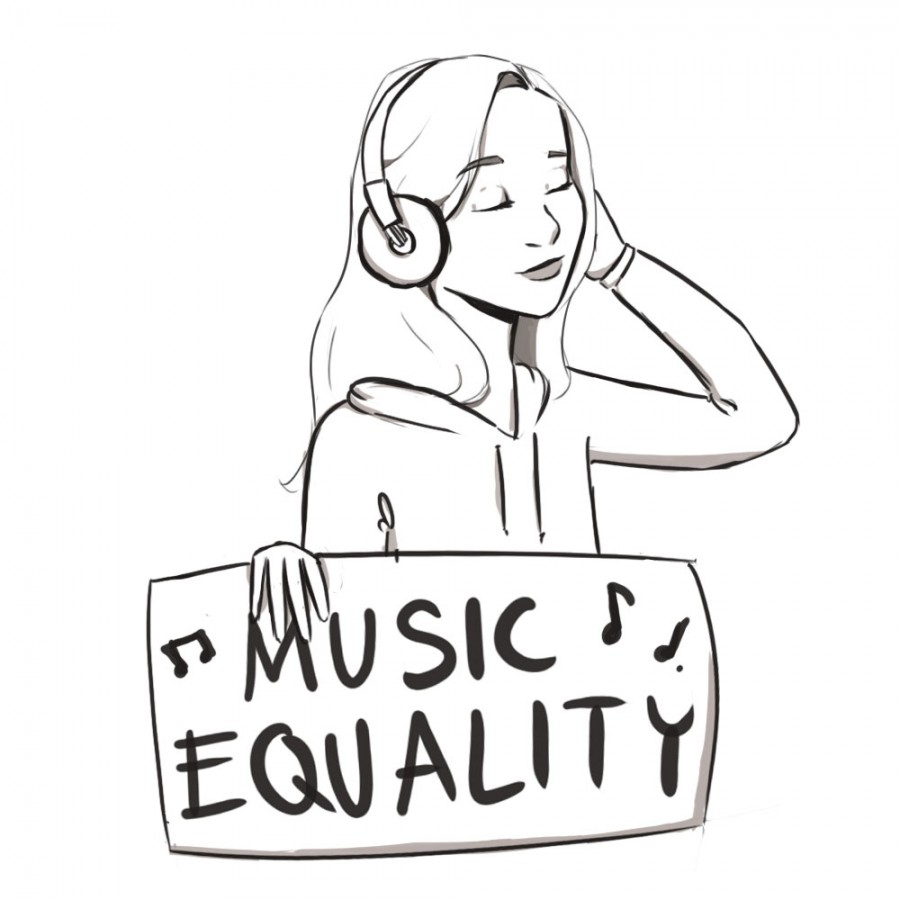SoundCloud revolutionizes music
When SoundCloud was founded in 2007 in Stockholm, Sweden by sound designer Alexander Ljung and Eric Wahlforss, the original concept was to create a platform where musicians could share their music with one another. However, the gradual development of the website, which is headquartered in Berlin, made for a revolutionary overturn in the music sharing landscape.
With Soundcloud, musicians are not barred by their level of fame, stature or prior success, to put out and publish their own songs and mixed tracks. No longer does a budding artist need a record label, a contract, or a technologically advanced studio to have their voice heard by audiences.
By 2013, it was reported by USA Today that SoundCloud had over 200 million users. Fred Wilson of Union Square Investors, one of SoundCloud’s major backers, has made public his belief that SoundCloud will become “as big as the Internet itself.”
“What is nice about SoundCloud is that everyone is there, it’s not something like a record label or iTunes,” Soundcloud user senior Scott Delamare said. “All those record labels are just big-shots. You have to be famous in order to be heard. But on SoundCloud, everyone is allowed to do it. Everyone is allowed to be a part of it. It’s very community based. It reaches out to people.”
SoundCloud, however, is no stranger to the likes of immense controversy. When uploading to SoundCloud, users have to confirm that they have obtained whatever rights that are required to remix or post tracks of songs originally sung and produced by famous artists and record labels.
However, not everyone on the internet complies with these directions. Due to the remixing of unlicensed content and lack of enforcement regarding copyright infringement plaguing the company’s reputation with popular record labels and studios, they have been forced to make gradual changes to the laid-back culture and cavalier system they had previously established. Recently, Soundcloud enforced a “Content Identification System” in which they try to identify audio that the rightful owners of the remixed content have demanded be removed from the website.
“SoundCloud has always taken seriously our responsibility to act upon requests from rightsholders who believe that their audio has been uploaded by someone without their permission,” SoundCloud said in a statement they posted to their blog on January 5, 2011. “Implementing this technology helps us to do this more effectively. And that in turn means that we can continue to focus all our efforts on serving over 2 million users who want to share the audio they have created.”
In spite of that, Scott and many artists like him feel that this controversy is relatively uncalled for. They believe that SoundCloud made a name for itself as being the artist’s vehicle for self-propulsion and backtracking on that will not win them any favors.
“I think it’s a shame that a lot of people’s accounts are being deleted or taken down, especially after knowing how much hard work goes into that,” Scott said. “A lot of record labels are too strict on it, and they only see it through the eyes of money… they don’t really strive for creativity…I think it’s unfortunate that there is so much restriction.”
No matter the controversy surrounding them, SoundCloud seems to be ever increasing in popularity. Making music, and even a certain degree of fame, accessible to less commonly known artists has made SoundCloud go-to for music aficionados all over the world. Bloomberg reported that each minute, SoundCloud users collectively upload 12 hours worth of audio content. In the last year, the service has signed an agreement with the major label Warner Music Group, both to generate revenue and claim its stake in the new era of music streaming. They are, in a sense, legitimizing themselves as an organization. The agreement provides that SoundCloud will add a subscription price, and that meanwhile, the Warner Music Group will pay for a three to five percent equity stake in the company.
SoundCloud notably appeals to a younger audience, and its lack of predictability makes for an action-packed venue where lovers of music come out to play. From records to CDs to iTunes — it seems that SoundCloud could live to be the next champion of musical transformation. Dispute or no dispute, SoundCloud is not going anywhere anytime soon.




